Majority of IT pros support Apple in legal fight with FBI
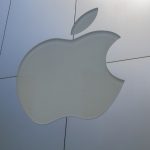
Encryption is a must-have in today’s digital communications, IT pros agree, adding that what the government is (trying to) achieve with surveillance could mean the death of privacy altogether.
Those are the results of a new survey conducted by security firm AlienVault. It surveyed the attitudes of more than 1,500 IT (including security) professionals about today’s privacy, and came up with interesting results -- 34 percent believe the government should be able to eavesdrop on communications for the purposes of national security.
Most IT professionals believe current privacy and consent tools are inadequate
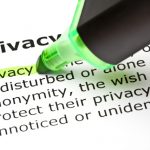
The regulatory environment for data is in a state of change at the moment with many countries introducing legislation to control the flow of information. This combined with growth of the IoT and digital economy is posing major challenges for business.
A new survey by identity management company ForgeRock finds 96 percent of surveyed IT professionals agree that there is an increasing need for dynamic and flexible privacy tools. And that these need to be adaptable to future borderless regulatory requirements and consumer expectations.
Only collaboration will solve the encryption dilemma

"They who can give up essential liberty to obtain a little temporary safety deserve neither liberty nor safety". So goes the quote from Benjamin Franklin, one of the Founding Fathers of the United States, in 1755. Little did he know that over 250 years later, his words would be frequently cited in one of the most complex debates of modern times.
In a world where data is collected, shared and sold as the norm, the liberty vs. security question has never been so relevant. The topic has been brought into the public eye by the UK Home Secretary’s draft Investigatory Powers Bill -- or Snoopers’ Charter -- and honed-in on the issue of encryption. More specifically, whether government agencies should be given the power to access encrypted, private communications, by forcing service providers to hand them over.
UK government launches a fast online identity verification service
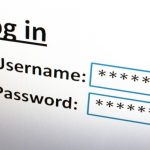
A new service has launched in the UK, which will allow the country’s citizens to easily verify their identity online. Called CitizenSafe, it is the brainchild of global specialists in identity data intelligence, GBG.
CitizenSafe was created after a survey had shown that people expect to access government services easily and securely online, and that online identity verification was a key step. It will be integrated within the UK government's gov.uk Verify service, and GBG says it will cut the time needed to verify an identity to mere minutes.
FBI should break Apple's encryption and keep it a secret
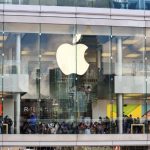
At the end of last month, Apple released a letter to its customers protesting about a US court order that could force the company to give the FBI a back door entry to individual iPhones. The case has brought the debate about government access to personal data and the protection of civil liberties to the fore once again. It has also made society and industry look more closely at the mechanics of data encryption and ask what makes the technology effective.
At its most basic, encryption provides a layer of protection for data at every stage of its journey from sender to recipient. If anyone tries to intercept or access the data without permission, they find themselves with a screen full of unintelligible gobbledygook. But encryption is only strong if there are no weak links in the chain. Apple argues that the FBI’s court order requesting a back door into its OS (Operating System) would force the company to create such a weak link in its encryption. This would undoubtedly speed up investigations of high profile crimes, but would come at high cost to the millions of law abiding iPhone users.
Security pros believe an encryption backdoor is open to abuse

The Government wants backdoor access to our devices so that it can protect us from terrorists and defend matters of national security. Even if its intentions are good, there are people out there that would abuse such a feature, security professionals attending the RSA conference agree.
Endpoint protection and response, security and compliance solutions company Tripwire surveyed 198 security professionals at the RSA Conference 2016 in San Francisco. Out of those surveyed, 81 percent said it was certain (or at least very likely) that cyber-criminals would abuse the government’s access to encrypted data via a backdoor.
In Apple vs FBI, it's our freedom at stake

Ever since it was announced that all iPhones would be encrypted by default with no reasonable way for Apple to unlock them, the FBI has been locked in an ever more acrimonious deadlock with the company. In the latest and most explosive development, the FBI has chosen its battle well: could there be a more emotive subject, or seemingly good reason for Apple to comply, than a demand to decrypt a single phone that belonged to a known terrorist?
By drawing its battle-lines in this way, the FBI achieves two things. On a basic level, it makes Apple look unreasonable for refusing, and therefore makes it easy to paint Apple as the "bad guy" who is preventing the "good guys" from protecting the American people against terrorists. This is a powerful argument, and certainly seems to have persuaded all front-running politicians.
Mozilla sides with Apple against FBI -- proposes basic principles for government surveillance
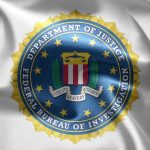
The ongoing dispute between the FBI and Apple is absolutely chilling. It shakes me to my core to think our government wants to force a company to write code under the guise of anti-terrorism. Quite frankly, the oft-argued opinion that supporting Apple in this regard is anti-American is not only wrong, but insulting. My soul still aches from 9/11, and I love America, but I also support Tim Cook and the company's fight to protect our civil liberties.
But forget my opinion -- major tech companies, such as Google and Microsoft, are standing up and pledging support for their competitor, Apple. Now, open source darling, Mozilla, is voicing its support too. Taking it a step further, however, the Firefox-maker is also proposing basic principles for government surveillance -- sort of like a bill of rights for encryption and surveillance.
Poll: Should Apple help the FBI unlock the San Bernardino iPhone?

The US courts say Apple should help the FBI access the contents of an iPhone belonging to one of the San Bernardino shooters, but Apple is refusing, on the grounds that it doesn’t want to erode the security of Apple customers.
I’m personally on Apple’s side, as is my colleague Joe Wilcox, but Donald Trump wants Apple to use "common sense" and open its phone up, while John McAfee is claiming he can help the FBI unlock Apple’s device within "three weeks", primarily through the use of social engineering. The FBI for its part says it doesn’t want Apple to create a backdoor in all iPhones, just unlock the one belonging to the killer.
Why Apple is right to reject the order to unlock a killer's phone
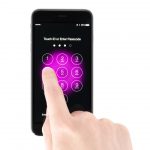
Apple has been ordered by the US courts to help the FBI gain access to data on an iPhone belonging to San Bernardino gunman Syed Rizwan Farook. Farook and his wife killed 14 people in the California city late last year before being shot dead by police.
The FBI says the phone contains information crucial to the investigation, and needs Apple’s help to unlock it. Data on Apple devices is encrypted by default -- and has been since September 2014 -- which means no one, other than the device owner, can access it. And that includes Apple itself.
Hackers leak contact information of 20,000 FBI employees
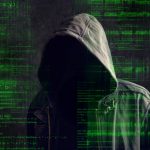
Hackers have leaked the contact information of 20,000 FBI employees, which follows the previous day's release of 10,000 Homeland Security employees' data.
The hackers communicating through Twitter, claimed "Well folks, it looks like @TheJusticeDept has finally realized their computer has been breached after one week".
New UK homes to get superfast broadband -- maybe

The UK government has today announced that it will work with Openreach -- BT's local access network business -- and the Home Builders Federation (HBF) on an agreement to deliver superfast broadband connectivity to new build properties in the UK.
The deal will mean that fibre-based broadband is offered to all new developments either for free or as part of a co-funded initiative.
Use smartphones to vote for president
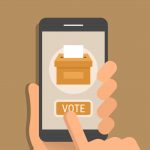
Over the weekend, my 94 year-old father-in-law asked what I would do to assure that every American who could vote would do so. That was an unexpected question, but one I addressed gingerly. This post is my answer restated for a public venue.
Simple answer: Smartphone. According to PewResearchCenter, nearly 70 percent of Americans own one of the devices, but the number among voting age adults tops 80 percent, according to other estimates. Surely a program could be in place by the 2020 Presidential race, and if lawmakers were truly serious about universal suffrage, a Manhattan-like project could make it happen by the next Mid-terms.
The FBI peddles child porn to catch predators at the cost of the kids

As a parent you worry excessively about your children. Are you raising them right? Do they understand the concepts of what is good and bad? And of course you want nothing evil to befall them. Criminals and predators are a constant worry, the latter being particularly scary. If something bad happens you wish to fix it as quickly as possible, though the trauma to the child may linger.
But what if the government ran a child porn site? There's the problem and it's one with multiple answers. There's the obvious knee-jerk reaction of entrapment, though those being captured deserve little sympathy. It's akin to the TV show To Catch a Predator which did little real good, but garnered ratings because it sensationalized the people involved.
Cyber attacks on industrial Internet of Things are on the rise
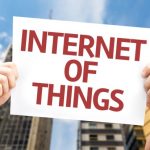
The United States government has revealed that it has detected a rise in cyber criminal attacks on industrial control systems.
The concern is that with leading manufactures and grid power producers’ early adoption of the industrial internet of things -- and Industry 4.0 which are commercial and industry versions of the Internet of Things -- sufficient safeguards have not been put in place to protect them from the internet.
Recent Headlines
Most Commented Stories
BetaNews, your source for breaking tech news, reviews, and in-depth reporting since 1998.
© 1998-2025 BetaNews, Inc. All Rights Reserved. About Us - Privacy Policy - Cookie Policy - Sitemap.